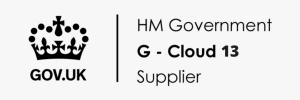For years, I’ve been fortunate to work alongside incredible Voluntary, Community and Social Enterprise (VCSE) organisations. Their dedication to positive change is truly inspiring. But there’s a constant undercurrent – the struggle to clearly demonstrate their impact. Funders, staff, boards, and beneficiaries all want to publish tangible evidence, a way to understand the real difference their organisations make.
This is where social value comes in, offering a powerful tool to translate the often-intangible benefits of VCSE activities into a compelling narrative. Going beyond just the numbers and highlighting the real human stories – the sense of belonging & inclusion fostered by a community centre, the improved health outcomes associated with a sports club, and the dignity restored by access to healthy food at a social supermarket or food bank.
Using the Social Value Engine, I witness daily the transformative power of social value across all sectors. But the VCSE space holds a particular place in my heart. Here, social value isn’t just a concept; it’s a potential game-changer.
Understanding the landscape
The grasp of social value within the VCSE sector varies considerably across the UK. While legislation in England, Scotland, and Wales mandates consideration of social value in public sector procurement, Northern Ireland hasn’t quite caught up yet. Despite this inconsistency, there’s one thing that holds true everywhere: a strong desire amongst VCSE organisations to showcase their worth and effectiveness.
Social value offers a framework to quantify the social, economic, and environmental benefits generated by VCSE activities. It’s not just about financial metrics but assigning a value to “softer” outcomes that resonate deeply with the communities they serve. By translating these outcomes into a relatable metric, social value strengthens the case for VCSE organisations. It compels decision-makers by demonstrating a return on investment that extends beyond just financial cost. It attracts funders and corporate bodies in seeking impactful, meaningful partnerships. And most importantly, it fosters greater community engagement by highlighting the positive societal change being created.
Social value as a catalyst for impact
Many VCSE organisations already recognise the importance of measuring their impact. Social value builds upon this existing commitment by offering a structured approach. Consider social prescribing projects across the UK – they’re prime examples of how social value can be more than just a tick-box exercise. These projects integrate social value principles into their very core, meticulously collecting data that goes beyond traditional metrics like service usage. They delve into the “softer” outcomes, measuring things like improved social connectedness, reduced isolation, improved physical and/or mental health etc. Through rigorous stakeholder engagement – involving beneficiaries, healthcare professionals, and community partners – social prescribing projects demonstrably measure the true impact of their services. This data-driven approach allows them to advocate for continued funding, secure new partnerships, and ultimately, improve the lives of those they serve.
This is just one example, and similar approaches are being adopted by food banks, cultural/arts organisations, and even community centres and sports clubs. They recognise the ongoing need to showcase their social value and affirm their contribution to the community.
Where should you start?
For VCSE organisations embarking on their social value journey, I recommend a gradual approach. Here are some key steps to consider:
- Start with awareness: Begin by fostering an understanding of social value within your organisation. Explore resources provided by the Social Value Engine or other relevant bodies. Engage staff and board members in discussions about the potential benefits of social value for your organisation and the communities you serve.
- Align with existing activities: Social value should not be seen as an additional administrative burden, but it does need to be meaningful. Are you collecting the right data to (a) accurately highlights the work you are doing and (b) tells the story of how the work is impact on your beneficiaries. Much of the data required for social value measurement may already be held by your organisation, so with some minor adjustments you can capture the broader social impact of your activities.
- Seek expert guidance: Consulting with established social value practitioners specialising in the VCSE sector can be invaluable. Their expertise ensures that adopted methods seamlessly integrate with existing evaluation and measurement practices. The Social Value Engine offers free training that is tailored to the needs of VCSE organisations.
- Focus on storytelling: Data is powerful, but it’s the story behind the data that truly resonates. Develop a compelling narrative that showcases the social value your organisation creates. Use your data to illustrate the positive change you are making in the lives of beneficiaries and within the community. The Social Value Engine can provide ‘impact cards’ to aid you in this. These are simple yet effective impact evaluation illustrations.
There is a lot to be gained from embracing social value as a VCSE organisation. You can validate your existence, prove your impact, and ultimately, attract more resources that benefit the people you support.
If you would like to learn more about the Social Value Engine or social value in general, then please don’t hesitate to get in touch with me!





